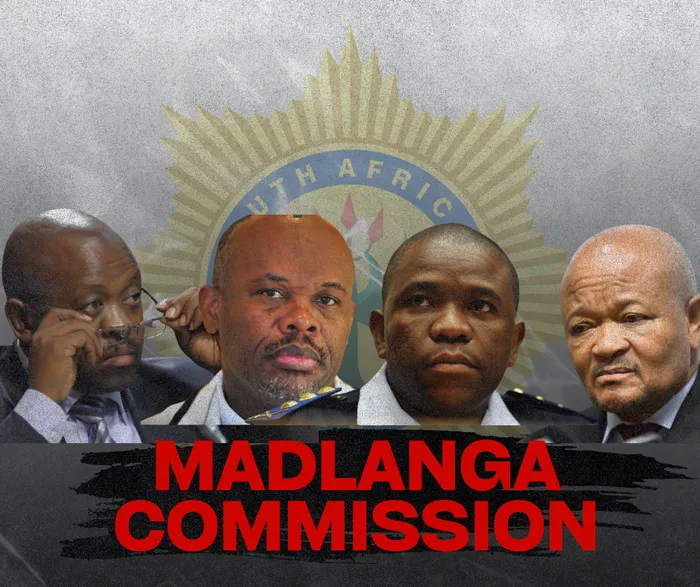WATCH | Detectives to testify on cartel investigations and alleged interference | Madlanga Commission

The Judicial Commission investigating corruption and political interference in South Africa’s criminal justice system will hold hearings behind closed doors next week, with witnesses testifying remotely amid sensitive police probes.
Image: IOL Graphics
The Madlanga Commission resumed its hearings on Monday morning.
Undisclosed witnesses are testifying in camera from a remote location, though their voices will remain audible to the public through the live feed.
Witnesses A, B, and C will testify off camera but from a remote location, with their voices broadcast live.
The witnesses, are expected to testify about their experiences as detectives investigating crimes linked to the criminal cartels that are the focus of the commission’s work, as well as the alleged interference in those investigations.
Commission spokesperson Jeremy Michaels said this will take place until Wednesday.
Michaels said the public and media would have access to the auditorium at the Brigitte Mabandla Justice College, where the hearings will take place.
He confirmed that the proceedings would be livestreamed and that witnesses’ exhibits would be displayed on screen as testimony is given.
“The transcript of the witnesses’ testimony will be made publicly available after the witnesses have finished testifying,” Michaels said.
Last week, IOL reported that the commission had temporarily adjourned its public proceedings and resumed them behind closed doors, due to sensitive evidence related to ongoing criminal investigations.
Justice Mbuyiseli Madlanga, who chairs the commission, confirmed on Thursday that proceedings would continue in camera that day and the next day.
The public and media are expected to return next week once the sensitive evidence has been addressed.
“This is the first time those implicated will hear this information,” Madlanga told attendees before adjourning the session.
He added that Michaels would provide further updates on next week’s programme.
Media houses initially opposed the decision to hold private hearings but later agreed after learning that the confidentiality was intended not to protect witnesses’ identities, but to safeguard active police investigations.
Chief evidence leader Advocate Matthew Chaskalson SC clarified the rationale, saying the subject matter of the evidence, not the witnesses’ identities, required an in-camera session.
“Public disclosure at this stage could compromise police investigations that are already at an advanced stage,” Chaskalson said.
He noted that the commission’s work often overlaps with parallel police probes, making strategic confidentiality essential.
“We hope that, well before the commission concludes, these investigations will reach a stage where this evidence can be shared publicly. Once that happens, today’s testimony will be made public,” he said.
Chaskalson added that while the decision was taken with caution, it was crucial to maintain narrative coherence within the commission’s broader findings.
“It makes thematic sense to hear this evidence now - even if secrecy is temporarily necessary,” he said.
Independent Newspapers, which had initially planned to challenge the closed-door ruling, later withdrew its opposition.
After consultations with the commission and its evidence leaders, the media group said it was satisfied with the decision.
Chaskalson also stressed that no additional witnesses would testify in private without a formal application.
“As per paragraph five of the commission’s ruling, any future in-camera sessions will be publicly announced at least 72 hours in advance,” he previously said.
simon.majadibodu@iol.co.za
IOL Politics